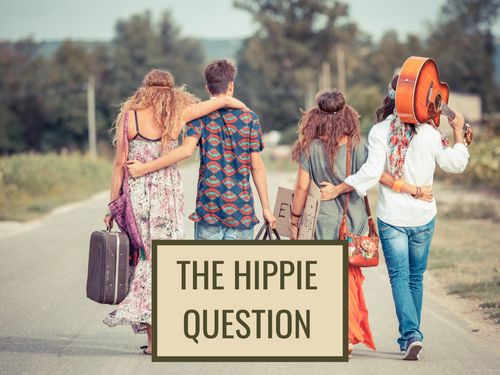What hippies wanted and why they failed
Sep 06, 2021 · 2 mins read
0
Share

Robert Pirsig raises the question of hippies: Why did a generation break free from its past in such an unexpected way? In a sense the hippie movement “has been so hard to understand because ‘understanding’ itself was its enemy.” Read on👇👇👇
Save
Share
The mystery of the hippies. The hippies were not rebelling against starvation or oppression. The hippies were predominantly “children of well-to-do, college-educated, modern people.” And yet they threw away lives many considered comfortable and privileged. Why?
Save
Share
Revolt against society. The hippies were more than “frivolous spoiled children”. The hippies saw that the materialist goals of their parents were not enough for a good life. The American dream rang hollow.
Save
Share
Revolt against reason. Among the hippies, “drugs that destroyed one’s ability to reason were almost a sacrament.” In the 1920s, American society had rebelled against repressive Victorian rules. In the 1960s, the revolt was against the intellect.
Save
Share
Looking outside. Both social rules, and rigid intellectual norms, can repress. The hippies looked outside to oriental philosophies like “Zen and Vedanta” for answers. They had contempt for anything that maintained or even represented order: the rules, the police, even science.
Save
Share
What were the hippies trying to do? They were trying to free themselves from a “paralyzing intellectual grip.” But once freed, they didn’t have a positive direction in which to go. This led to multiple failures that eventually added up.
Save
Share
Pirsig describes the hippie movement: “Anarchy became the most popular politics; squalor and poverty and chaos became the most popular life-styles.” This “degeneracy for degeneracy’s sake” is not a sustainable life strategy.
Save
Share
Free love. Rejecting the rules of society and reason, hippies fell into the compulsion of the body. The movement became obsessed with sex and the rebels fell under the spell of a new master: carnal desire.
Save
Share
Pirsig sees the fundamental nature of reality as a tug of war between static and dynamic forces. The hippies represented the dynamic force that asked good questions but came up with no good answers. Their unqualified rebellion created no new world, just destroyed the old.
Save
Share
Bottom line. The hippies saw the weak links in their society’s norms and intellectual precepts, but instead of strengthening the weak links they attacked them further. They deconstructed but couldn’t reconstruct. The movement burnt brightly and then fizzled out.
Save
Share
0